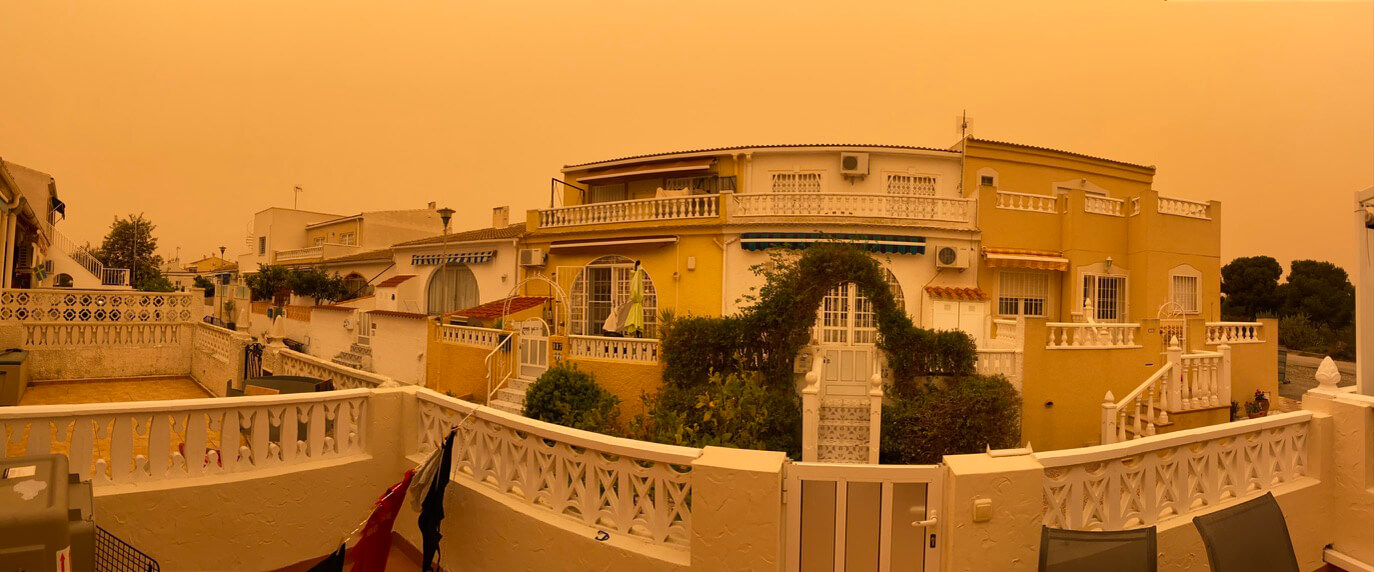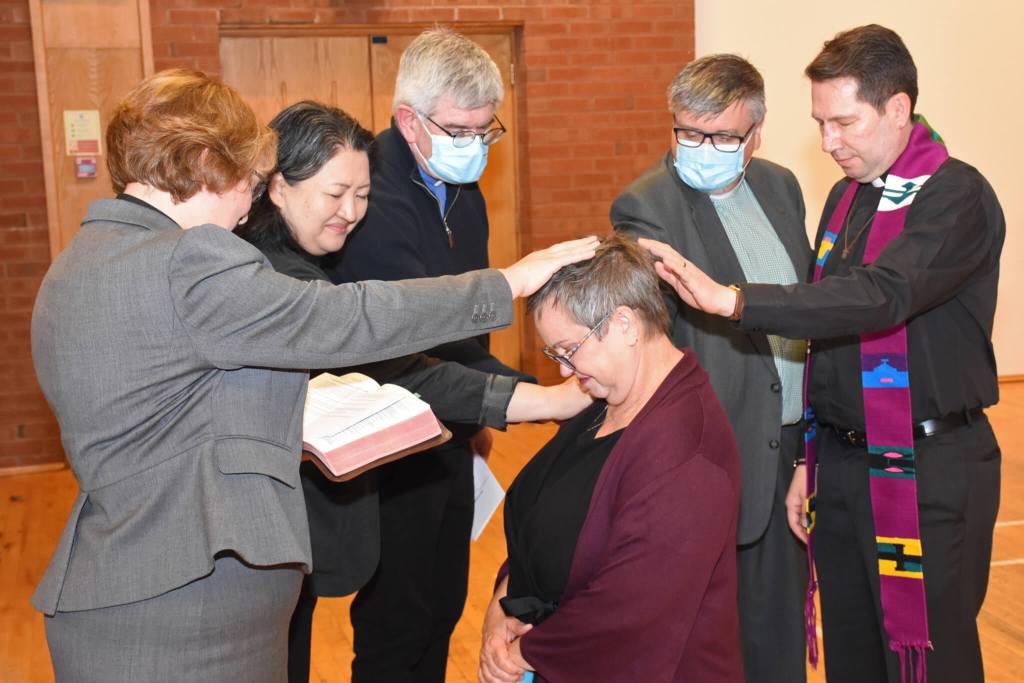
By Krista Givens
June 27, 2023 | TORREVIEJA, SPAIN
After a long night of thunderstorms and lightning, my dog Po and I wake up to the morning sunshine. With an intense fear of thunder, Po is anxious to greet the morning and I am anxious to prepare the coffee. As we leave the house for our morning walk in Torrevieja, a city on Spain’s Mediterranean coast, we step onto the wet pavement and notice a thick layer of orange mud on the walkways, on the cars, on my plants and flowers, and on my patio furniture.
Of course, those of us who live in the area know this is the result of having “suspension dust” in the atmosphere, also known as calima. When rainfall occurs during a period of calima, it leads to muddy rain, known as lluvia de barro in Spanish, as dust and sand particles are dragged down by the rain to the surface. Last year, we experienced a major calima event of sand clouds from the Sahara, given Spain’s relative proximity with the 9.2 million sq. kilometers (3.5 million sq. miles) desert.
While the orange film is annoying and a pain to clean up, it is a worthwhile reminder of our neighbor to the South. Nearby, though we don’t see it, is a vast expanse of desert. And we cannot forget or turn away from that reality. Even the rain cannot wash away our neighbor and our ties to that neighbor.
The prophet Zechariah is not one we usually study, but I find the messianic prophecy comforting. Zechariah 10:1 (NIV) states:
“Ask the LORD for rain in the springtime; it is the LORD who sends the thunderstorms. He gives showers of rain to all people, and plants of the field to everyone.”
Recognizing that God sends showers on all people is acknowledging that joys come to us all and sorrows come to us all. But God also provides “plants of the field to everyone.” God provides us with what we need to survive, be they talents, skills, people in our lives or opportunities to pursue. And recognizing that we all experience the rain and we all are blessed with God’s growth, makes it easier to clean up the residue left.
When we isolate ourselves, think too highly of ourselves or when we are lost in the busyness of life, God showers us all and the calima is left as evidence of the rain.

The calima is God’s reminder, “Don’t forget your neighbor.”
The calima is a reminder that God cares for us all – on the rainy days and on the fruitful days.
The calima is a blessing. Even if it is a bit messy to clean up.
The Rev. Dr. Krista Givens is a missionary pastor serving La Siesta Evangelical Church, an English-speaking congregation in Torrevieja, Spain.
Global Missionaries
Global Ministries missionaries are a tangible connection between The United Methodist Church and mission. Through denominational or ecumenical ministries, missionaries bear witness to God’s presence all around the world. They are called by God and sent out to serve by the church, usually placed in a new cultural context beyond their country of origin. Missionaries engage in ministry that is defined by mutuality and partnership, seeking to expand the mission of God already present and active in people and places.
Support the ministries of missionaries working around the world, Advance #00779Z.

